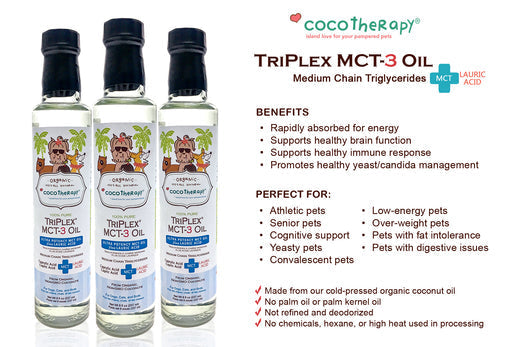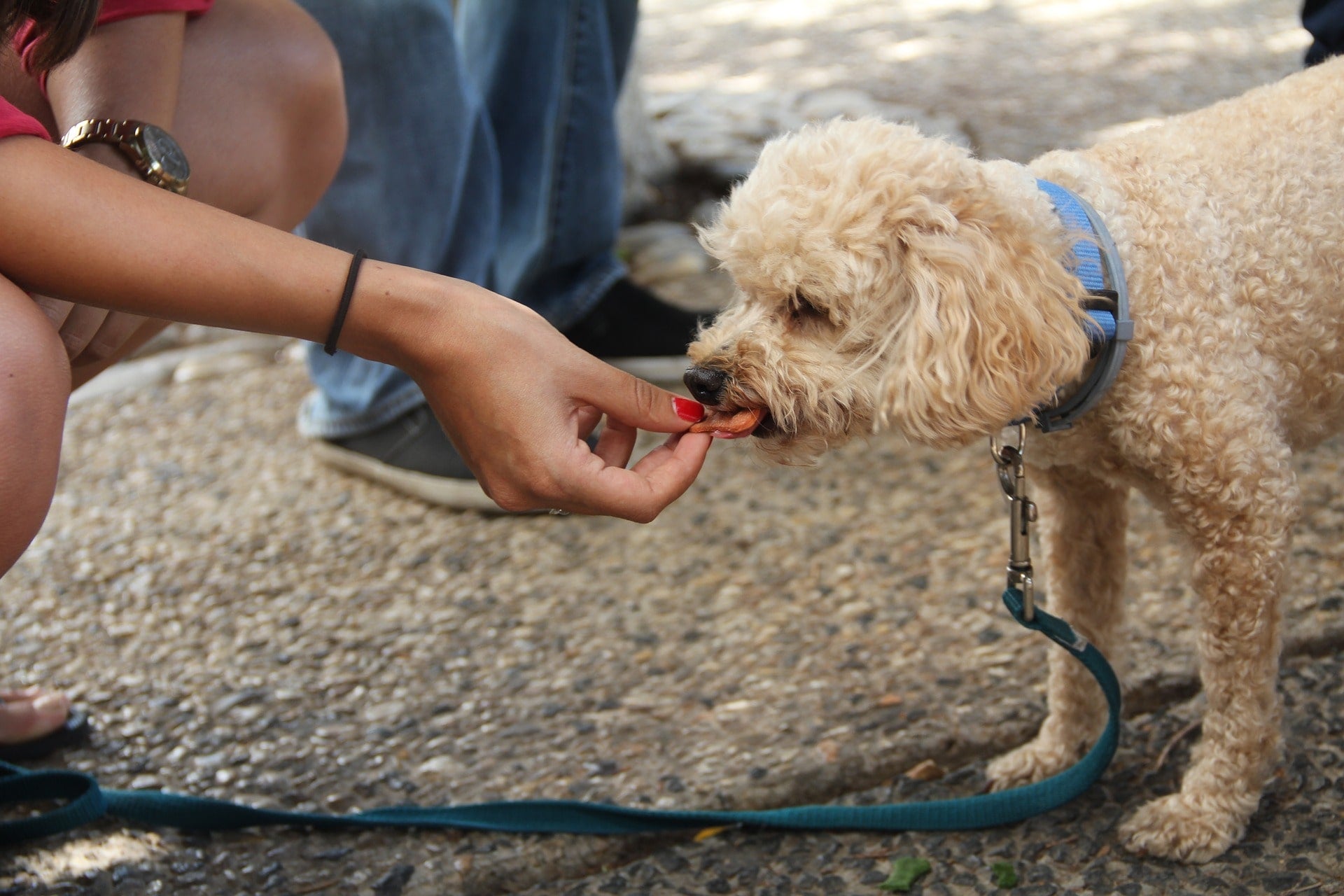Vomiting in cats is a common problem with a wide range of potential causes. Although occasional vomiting (less than once a month) is usually not considered abnormal, sudden or continuous vomiting can be a symptom of serious underlying illness. In today's post, we'll highlight some of the most common causes of vomiting in cats. We'll also explain what to do if your cat is vomiting, and look at some of the warning signs they may need to visit a veterinarian.
Common Causes of Vomiting in Cats
Identifying the cause of your cat's vomiting can help you decide whether it's appropriate to seek veterinary treatment. In this section of the post, we'll take a look at a few of the most common causes of vomiting in cats.
Eating Too Fast
Eating too fast is a common cause of vomiting in cats. Signs to look out for include gulping and regurgitation of undigested food. However, it's important to be aware that regurgitation of food can also be a sign of health issues such as esophageal injury or disease.
If you suspect your cat's vomiting is caused by eating too fast, we recommend splitting their meals into smaller portions or using a slow-feeder bowl. If you live in a multi-cat household, feeding your cats in separate rooms can help prevent them from gulping their food. Please visit your veterinarian if you've tried these suggestions and your cat still vomits after eating.
Poor-Quality Diet
A poor-quality diet is another factor that can contribute to vomiting in cats. Cats are classified by scientists as strict carnivores. This means that they thrive on a meat-based diet. In fact, they cannot survive without some form of meat in their diet.
Unfortunately, many commercial cat foods are made with rendered proteins such as animal skin, hooves, and other slaughterhouse scraps. In addition, low-quality commercial cat foods often contain biologically inappropriate ingredients such as corn and soy protein.
When fed poor-quality diets containing these types of ingredients, cats can develop health problems such as digestive issues and food allergies that can lead to vomiting. The best foods to feed your cat are living, raw, fresh, and species-appropriate. Check out our previous post for more information on choosing the right diet for your cat.
Poisoning
Sudden vomiting in cats may be caused by poisoning. Common household toxins that are poisonous to cats include cleaning products, medications, pesticides, and antifreeze. Certain types of plants and flowers are also highly toxic to cats. These include azaleas, oleanders, lilies, and tulips.
Foods that are toxic to cats include chocolate, grapes and raisins, onions and garlic, and xylitol (an artificial sweetener found in chewing gum and other food products). If you suspect your cat has been poisoned, it is vital to seek immediate emergency veterinary care.
Hairballs
Hairballs are another common cause of vomiting in cats. Frequent self-grooming causes cats to swallow hair, which then accumulates in their stomach and forms hairballs. If vomiting is caused by hairballs, your cat will expel cylindrical masses of clumped hair. Vomiting may also be accompanied by retching, hacking, or gagging.
If your cat frequently vomits hairballs, we recommend treating them with CocoTherapy Hairball Plus. It's made with one simple ingredient, high-fiber organic coconut, and can reduce – and even eliminate – hairballs. It helps your cat pass hairballs more easily by adding moisture and bulk to their stool. Plus, it's great for their overall digestive health!
CocoTherapy Coconut Oil is also a useful dietary supplement for cats that are prone to hairballs. Because coconut oil improves your cat's coat, shedding is reduced and they'll be less prone to forming hairballs in their stomach. Coconut oil also reduces inflammation in the respiratory tract that can occur when your cat regurgitates hairballs. In addition, it improves digestion and adds moisture to the stool so hairballs can pass more easily.
When treating your cat with coconut oil, be sure to choose a therapeutic-grade oil such as CocoTherapy coconut oil. Our oil is sourced from our USDA-certified organic family farm in the Philippines and made in our own facility.
CocoTherapy organic virgin coconut oil is a healthy, all-natural product that's rich in beneficial lauric, capric, and caprylic acids. It supplies medium-chain triglycerides, which help maintain healthy body functions and support your cat's overall health.
Underlying Health Issues
A wide variety of underlying health issues can lead to vomiting in cats. These include infections, parasites, and gastrointestinal disorders. Vomiting can also be a secondary symptom of serious illnesses, including pancreatitis, liver disease, and cancer.
Dysbiosis (leaky gut syndrome) is another example of an underlying health issue that can lead to chronic vomiting in cats. The condition is caused by an imbalance in the natural microbiome of the gut. This can be caused by a number of factors, including improper nutrition, over-vaccination, stress, and exposure to toxins.
Overuse of antibiotics can also lead to dysbiosis and vomiting in cats. Too often, antibiotics are prescribed to relieve inflammation when no bacterial infection is present. When this happens, antibiotics can kill beneficial bacteria that reside in the gut, creating an imbalance in the microbiome.
In some cases, beneficial strains of bacteria are completely eradicated, and it becomes difficult for the body to replenish them. As a result, cats have difficulty digesting their food and the lining of the gut becomes compromised. When this happens, leaky gut syndrome can occur, leading to symptoms such as diarrhea, bloating, and chronic vomiting.
Fortunately, there are several measures you can take to improve your cat's gut health. Here are a few simple suggestions:
- Supplement your cat's diet with prebiotics and probiotics
- Introduce your cat to fermented foods
- Add digestive enzymes to your cat's diet
- Feed your cat therapeutic-grade coconut oil
For more information on leaky gut syndrome and digestive health, please refer to our previous post, Leaky Gut Syndrome in Pets. This article from AnimalBiome.com is also a great resource on the topic.
As we mentioned at the beginning of this post, sudden or continuous vomiting can indicate a serious underlying health problem. Please visit your veterinarian immediately if you are concerned about your pet's symptoms. In the final section of this post, we'll make some recommendations about what to do if your cat is vomiting. We'll also look at some of the warning signs your cat may need to visit the vet.
What to Do If Your Cat Is Vomiting
If your cat is vomiting, withhold food for a few hours but continue to provide water. If vomiting subsides, offer small amounts of food every few hours for the next 24 hours. Please visit your veterinarian immediately if vomiting resumes, or if your pet displays additional symptoms such as diarrhea, fever, or weakness. Other warning signs that your cat needs to visit a veterinarian include blood in the vomit, dehydration, and an inability to keep down water.
Want more information to help you take care of your feline friend? Check out our previous post, Is Coconut Oil Good for Cats?




